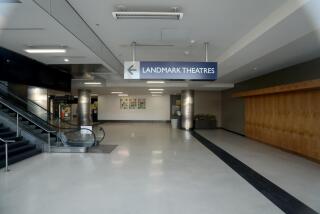Family Crisis Center Plans Half-Way House
- Share via
HERMOSA BEACH — The 1736 Family Crisis Center here will open what it claims to be the country’s first half-way house for battered women and children, using grants from the South Bay Hospital District and the Atlantic Richfield Foundation.
The shelter, to be called Second Step, will give women and their young children a place to stay for several months after they leave a one-month emergency shelter. They will receive counseling and training in managing money, disciplining children, developing self-esteem and finding jobs, said Carol Adelkoff, executive director of the nonprofit center.
She said the half-way house concept has been used for such people as alcoholics, teen-age prostitutes and the psychologically impaired but not for victims of domestic violence.
Survival Skills
“What we will do is combine housing with some real concentrated clinical programs for survival,” she said. “As far as we know, no other place has tried that approach.”
She said that at least half of the battered women who leave emergency shelters return to the people who beat them, usually because they do not have the money or skills to live on their own. Second Step will seek to break that pattern, she said.
Each year, 7,500 battered women are sheltered in 34 emergency refuge houses throughout Southern California, she said, adding that while these shelters help women and children deal with traumas of broken bones and broken homes, they do not teach them skills to live independently.
Looking for House
Adelkoff said her agency is in the market for a house and hopes to open a shelter accommodating up to five women and their children “in the next few months.” Other women who have places to live also will be able to receive counseling and training there, she said. Services will be free.
The hospital district, which funds public health programs in three South Bay beach cities, gave $143,360 to the center--$30,000 to help purchase a shelter site and $113,360 for operation of the program. Atlantic Richfield gave the center $20,000 for the shelter project.
Adelkoff said more money is needed for the project, which is intended to be a model for others, and she hopes the grants will encourage others to donate.
More to Read
Sign up for Essential California
The most important California stories and recommendations in your inbox every morning.
You may occasionally receive promotional content from the Los Angeles Times.













